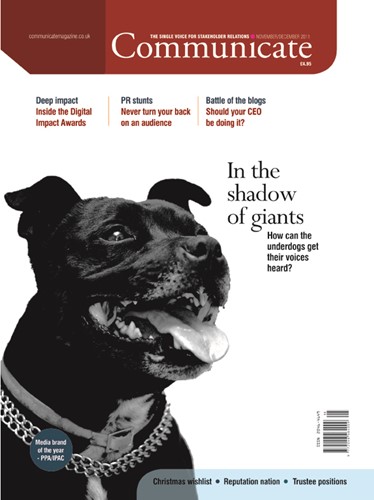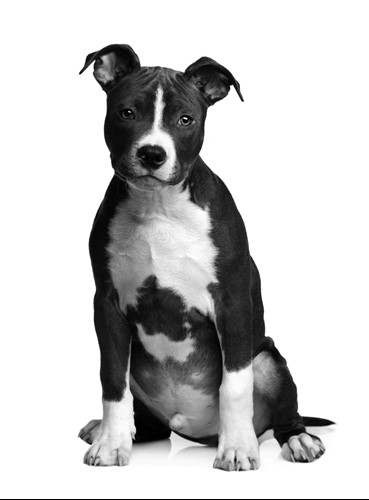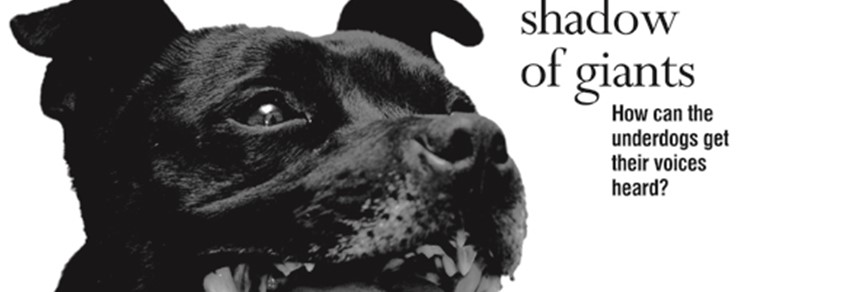Certain brands take on iconic status, becoming synonymous with not only a product but a whole industry so how do the underdogs make themselves heard? David Benady reports
 Taking on the National Lottery, even for a powerful media mogul such as Richard Desmond, is a David and Goliath struggle. The Health Lottery, run by the owner of the Daily Express and Channel 5, launched in October with the aim of raising funds for 50 local health charities. It already sells a healthy two million tickets a week. But it is competing against a £5bn a year Government-controlled monopoly launched two decades ago which has already seen off a stream of rivals including Keno, the NHS Loto, Lucky Lotto and “Monday”. It would be victory indeed for Desmond’s venture to secure continued success.
Taking on the National Lottery, even for a powerful media mogul such as Richard Desmond, is a David and Goliath struggle. The Health Lottery, run by the owner of the Daily Express and Channel 5, launched in October with the aim of raising funds for 50 local health charities. It already sells a healthy two million tickets a week. But it is competing against a £5bn a year Government-controlled monopoly launched two decades ago which has already seen off a stream of rivals including Keno, the NHS Loto, Lucky Lotto and “Monday”. It would be victory indeed for Desmond’s venture to secure continued success.
The communications challenges for brands and organisations in markets dominated by a giant rival seem, at first glance, overwhelming. The market leaders have little problem getting heard and setting up meetings with the people that matter, whether investors, regulators or politicians. Their press releases are eagerly pored over by journalists. They are often first port of call when the media is seeking comment. But times are changing; and social media, public scepticism and a sneaking respect for the underdog are giving the small players an opening.
From Yeo Valley yoghurts taking on the might of Müller with its rapping farmer ads, to new entrant to the utility market Ovo competing against the big six energy firms, challenger brands are learning to outsmart the big players.
The challenge for the Health Lottery is compounded by the fact that it does not have a chief communications officer, a situation it is now seeking to rectify as it recruits a top-level communicator. Stakeholder communications is handled by head of marketing Sarah Tinsley. “Given that we are a challenger in a market monopolized by a well-established brand, we are aiming to differentiate ourselves. But we are constantly being drawn into a comparative debate so we need to state our position clearly without getting into too much of a tit for tat debate,” she explains.
This is a classic double bind for those operating in the shadow of a giant. They must ensure their messages compete with the dominant player while still sounding fresh, interesting and different, rather than coming across as a tepid runner-up. For the Health Lottery, its points of difference play on public dissatisfaction with elements of the way the National Lottery is run. Desmond’s lottery offers a higher chance of winning a £100,000 jackpot rather than a smaller chance of scooping millions. It also quickly hands out charity funds to identified good causes across the UK, rather than passing the money on to distribution bodies which sit on it for years and seem to favour projects in London and the South East.
A further complication for the Health Lottery is that many press rivals to Desmond’s Northern & Shell publications are reluctant to give it a fair hearing. This is somewhat balanced out by the Desmond titles’ readiness to run Health Lottery press releases. But Tinsley says the brand has used PR on radio to bypass hostile press.
Playing on public distrust of brand leaders is aided by a tendency amongst media and politicians to exploit the leaders for their own ends. Mark Gallagher, a former communications director at Camelot and ITV who has set up his own consultancy Pagefield, says: “In this country, at least, being a high profile market leader guarantees you a hostile press. It also attracts the negative attention of NGOs, the government, parliament and the regulators, usually either wishing to pose as consumer champions at your expense, or asking for in-kind contributions from companies that fall well outside their core commercial purpose.”
Playing David to a powerful market Goliath presents reverse challenges, says Gallagher. Rather than defensive issues management, smaller players need to concentrate on creating pro-active corporate and consumer PR campaigns. “It’s all about fighting much harder for air space and column inches and establishing credibility in the media and political marketplace,” he says.
Some believe that there has never been a better time to be a minnow in a pond full of whales. A general suspicion of big corporations exacerbated by the banking crisis, fat cat pay, and pollution scandals has dovetailed with the advent of digital media. The online world allows smaller players to get a word in edgeways without being drowned out by the leviathans.
As Peter Roberts, associate director at Hill & Knowlton, says: “The playing field has improved for those smaller brands due primarily to the arrival of social media. Where the ‘big beasts’ held the advantage in the past due to their bigger budgets, social media offers effective and direct consumer access for the smallest brands.”
A powerful example of leveraging social media with a limited budget is yoghurt brand Yeo Valley, which has used amusing ads in the breaks of The X-Factor featuring rapping farmers and a farmers boy band to create a stir in social media. The latest ad featuring mock boy band “The Churned” has had nearly half a million views on Youtube. Yeo Valley’s head of marketing Ben Cull says social media has given the brand an opportunity to reach people that didn’t exist ten years ago. Yeo Valley has a 5% share of the UK yoghurt market and spends about £1m a year on advertising, while giant rivals Müller and Danone dominate the market and spend up to £20m. “We are trying to set our stall out entirely differently,” says Cull. “We have created our own white space. We live and work in this beautiful valley, we are real people making a difference. We are the anti-thesis of mainstream corporate brands. We row the other way, we feel there is more soul to our business.”
He says ads in The X-Factor and subsequent social media take-up have built awareness and credibility of the brand not only amongst families but also with employees and suppliers. Cull says the next stage of the campaign will be to use PR to keep getting the message across about the provenance of the organic yoghurt. “A deeper understanding will evolve through PR and building the strength of the business. First people must know who you are and what you stand for, and we’ve now become more of a household name. The next stage is getting advocates and word of mouth recommendations through social media. We can’t compete with the big spenders without doing more work on advocacy.”
Where lesser known organizations can often struggle is getting a hearing from politicians. Getting your chief executive through the door of 10 Downing Street to rub shoulders with fellow captains of industry, drop a word in the ear of the Prime Minister, and network with highly-placed establishment superstars is a dream of many communications chiefs.
But an invitation to Number 10 is often the preserve of the biggest corporations and industry players – the Murdochs and Diamonds, the bosses of BP or Vodafone – not usually those lower down the pecking order.
However, Greg Dawson, director of communications at Virgin Atlantic, argues that smaller industry players can get a seat at the top table if they use their nous. When he was communications chief at budget hotels group Travelodge, a challenger brand in a hotel market dominated by huge global rivals, he fought to build the reputation of a brand sneered at for its “Alan Partridge tradition” and with a low unprompted brand awareness score of 60%. He says this has now risen above 90%.
“When you’re lobbying, you have to show how you support the government. Naturally, jobs are a very important currency. Being supportive on one aspect gives you license to challenge on others”
In 2007, Travelodge executive chairman Grant Hearn joined the Mayor of London’s Skills & Employment Board, a body set up to improve workers’ skills and get the unemployed into jobs. “For smaller players, it is all about choosing the right campaigns and issues to get involved in,” says Dawson. “It allowed us to create lots of new initiatives and it grew our leadership in this area with media opportunities in the Evening Standard and BBC London. We got Grant into 10 Downing Street and we spent a lot of time with the employment minister at the time, Caroline Flint.”
Getting involved with the right cause helps when lobbying on other issues - Travelodge was campaigning against a bed tax. “When you’re lobbying, you have to show how you support the government. Naturally, jobs are a very important currency. Being supportive on one aspect gives you license to challenge other policies.”
Dawson insists that smaller industry players can be just as effective in getting their voices heard as the giants. “It is not the size of your business that counts, it is the strength of your brand that gets you interest and focus,” he says.
That may be fine if you have a sexy brand like Virgin Atlantic, or the critical mass of Travelodge. But trying to get heard above the din of powerful players can be a struggle in some markets The charity sector, for instance, is dominated by a handful of big name organizations. But there is a long tail of 300,000 charities registered in the UK and it can be a challenge for many of them to get a hearing.
Leading charities get an easier ride in the media than smaller players. The £300m turnover charity Oxfam often dominates the news agenda during emergencies and with development issues, crowding out other agencies such as Christian Aid, a third of its size with a turnover of £100m. Steven Buckley, Christian Aid’s head of communications and brand, accepts that the charity may occasionally lose out in media coverage to Oxfam, though this is partly down to the Christian tag, which journalists believe attaches it to a particular cause. “The only way to tackle that is to have interesting things to say, and to have a programme of media outreach, good
quality stories and analysis,” he says.
Through thought leadership, Christian Aid has managed to score some notable successes, he says. He points to the Poverty Over campaign launched in partnership with The Guardian. And he says the charity has certain strengths others lack, such as support from 22,000 churches in the UK which come together during Christian Aid Week.
“Oxfam would kill for our network,” he says. “We don’t act small and don’t think of ourselves as small. It is a slippery slope if you think that. It is the credibility that is most important.”

Steffan Williams, managing director at consultancy Capital MSL, shares the belief that small can be beautiful when it comes to communications. “Challengers can be iconoclastic and throw rocks at the established order to say what they want. The mobile handset market is a classic example. Apple was the challenger to Nokia and Nokia’s fall from grace has been spectacular.” Apple has risen to become the brand leader, though it now has the challenge of maintaining that position: especially hard following the death of founder Steve Jobs.
One of the burdens of brand leadership is that media attention focuses on any crisis that may strike. Apple found this with the Foxconn controversy, when workers at a supplier plant in China committed suicide, allegedly over the inhuman working conditions.
A question for smaller players is how far they should exploit scandals that hit their biggest rivals. Jonathan Hemus of Insignia Communications, says: “The first thing to think about is how to protect your reputation against a similar crisis. All your stakeholders, not just media, will have their radars operating looking for other players in the
sector with similar problems.”
Before making capital out of another’s misfortune, an organization needs to ensure it is whiter than white, he says. “You had better make sure you have no skeletons in the closet yourself or you’ll end up with an even bigger crisis.”
Markets are increasingly consolidating around one or two brand leaders as consumers struggle to fit many more brands into their heads. But with a ballsy approach to communications, small brands can emerge from the shadows cast by giants.

 Taking on the National Lottery, even for a powerful media mogul such as Richard Desmond, is a David and Goliath struggle. The Health Lottery, run by the owner of the Daily Express and Channel 5, launched in October with the aim of raising funds for 50 local health charities. It already sells a healthy two million tickets a week. But it is competing against a £5bn a year Government-controlled monopoly launched two decades ago which has already seen off a stream of rivals including Keno, the NHS Loto, Lucky Lotto and “Monday”. It would be victory indeed for Desmond’s venture to secure continued success.
Taking on the National Lottery, even for a powerful media mogul such as Richard Desmond, is a David and Goliath struggle. The Health Lottery, run by the owner of the Daily Express and Channel 5, launched in October with the aim of raising funds for 50 local health charities. It already sells a healthy two million tickets a week. But it is competing against a £5bn a year Government-controlled monopoly launched two decades ago which has already seen off a stream of rivals including Keno, the NHS Loto, Lucky Lotto and “Monday”. It would be victory indeed for Desmond’s venture to secure continued success. Steffan Williams, managing director at consultancy Capital MSL, shares the belief that small can be beautiful when it comes to communications. “Challengers can be iconoclastic and throw rocks at the established order to say what they want. The mobile handset market is a classic example. Apple was the challenger to Nokia and Nokia’s fall from grace has been spectacular.” Apple has risen to become the brand leader, though it now has the challenge of maintaining that position: especially hard following the death of founder Steve Jobs.
Steffan Williams, managing director at consultancy Capital MSL, shares the belief that small can be beautiful when it comes to communications. “Challengers can be iconoclastic and throw rocks at the established order to say what they want. The mobile handset market is a classic example. Apple was the challenger to Nokia and Nokia’s fall from grace has been spectacular.” Apple has risen to become the brand leader, though it now has the challenge of maintaining that position: especially hard following the death of founder Steve Jobs. 


